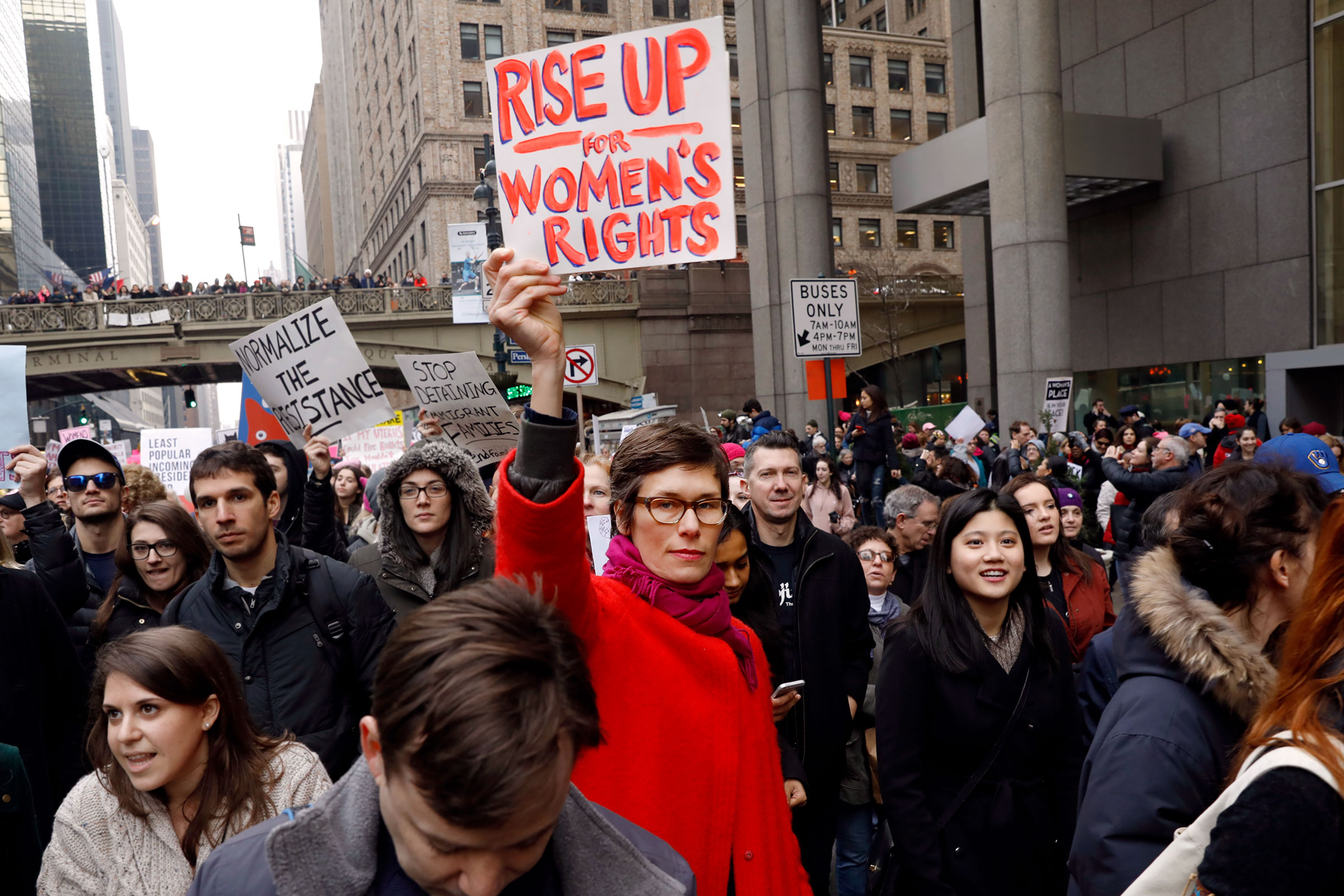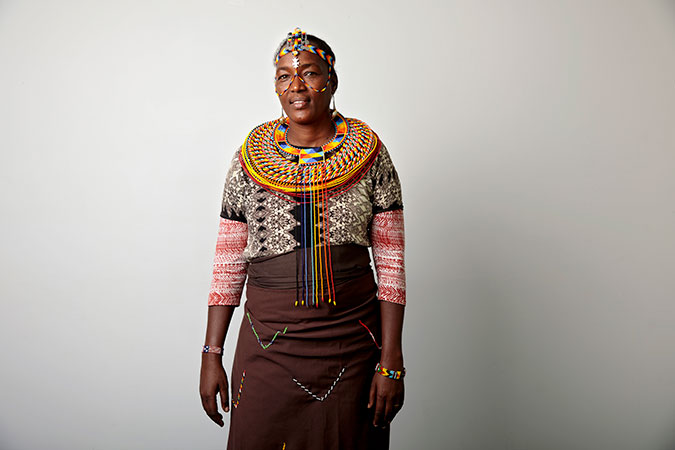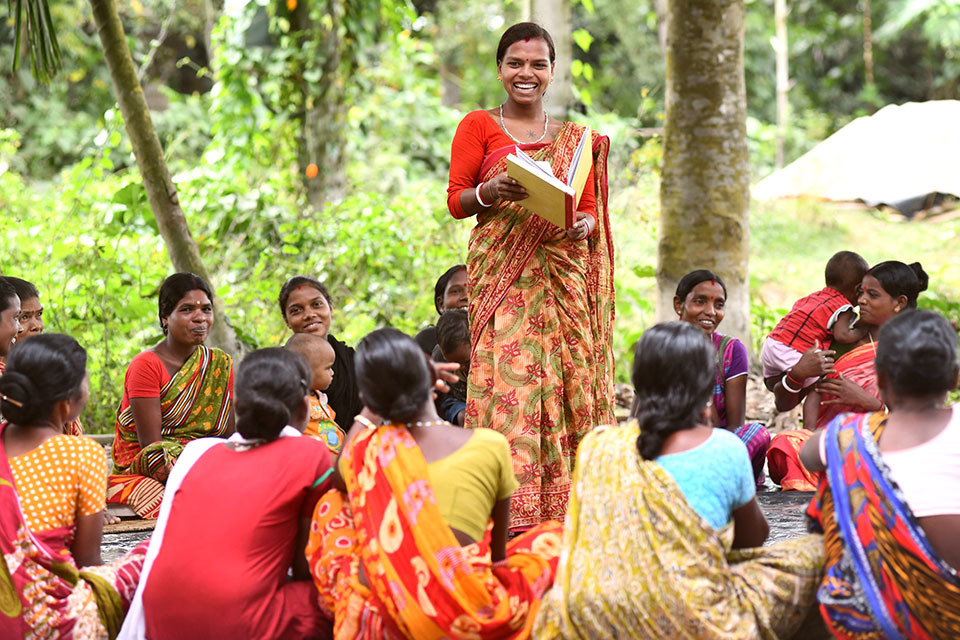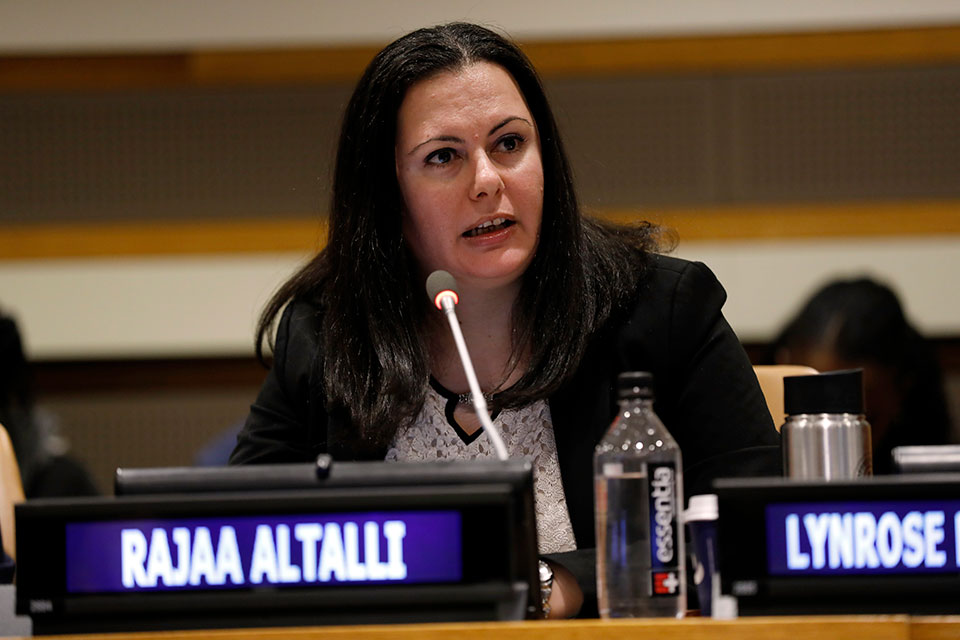Women rising: Women’s activism that has shaped the world as you know it
Date:
This story was originally published on Medium.com/@UN_Women

Women have always risen. Women are rising today. Women will always rise.
From the women who came together in Seneca Falls for the United States first women’s conference, to the Mirabal sisters who protested dictatorship in the Dominican Republic and everyone who has shared their #MeToo story on social media, the women who’ve risen up to claim their rights and to protect the rights of others, have changed the world as we know.
On International Women’s Day, we’re celebrating women activists around the world who have insisted on a better world and persisted in the face of adversity.
Keep reading to learn how International Women’s Day started, and about women rising, then and now.
The beginning: Women’s suffrage, labour rights and revolution
Since the earliest days of its history, International Women’s Day has been a day for women to unite for a common cause, even when women were protesting World War I.
The first International Women’s Day in 1911 saw more than one million people across Austria, Denmark, Germany and Switzerland mobilizing for women’s suffrage and labour rights.
In 1917, a large women-led demonstration demanded “bread and peace!” in Russia, and four days later, the Czar abdicated. Now a Russian national holiday, the Day is what some historians credit with Russian Revolution.
Demanding women’s right to vote in the United States, 1920
The 19th Amendment granted women in the United States the right to vote in 1920, more than 30 years after New Zealand became the first country to do so.
The women’s suffrage movement in the US started in 1848 at the country’s first women’s rights convention. After being barred from speaking at an anti-slavery convention, Americans Elizabeth Cady Stanton and Lucretia Mott brought together hundreds of people in Seneca Falls, New York. There, they demanded civil, political and religious rights for women, and kicked-off the women’s suffrage movement in the United States.
Driving political change in the Dominican Republic, 1960
Minerva. Maria. Patria.
— UN Women (@UN_Women) December 23, 2018
“Las Mariposas” became symbols of feminist resistance when they protested dictatorship. Discover our timeline of women’s rights movements: https://t.co/0wJbWm2zpc #TimeIsNow pic.twitter.com/KlVQIUe9NQ
Patria, Minerva and Maria Teresa Mirabal were outspoken political activists and leaders of the resistance against the Trujillo dictatorship in the Dominican Republic. Despite Trujillo’s persecution, the sisters continued advocating for change and respect and human rights for all. In November 1960, Trujillo declared that his two problems were the church and the Mirabal sisters.
On 25 November 1960, the sisters were assassinated. Their death shocked and enraged the nation, leading continued public outcry. Their assassination is considered one of the events that helped accelerate Dominican Republic’s independence movement, and within a year, Trujillo’s dictatorship came to an end.
To honor the Mirabal sisters, 25 November was named International Day for the Elimination of Violence against women.
And Now…
Protecting indigenous lands in Kenya

In Kenya, women of the Rendille community in Marsabit County, banded together to protect their lands when investors came in and claimed it as their own.
“It really brought our community together, to work towards a solution,” says Alice Lesepen, a member of the community. “We started having community meetings, especially the women, to come together with one voice and claim back our land. We really want to be part of the development project. Can we be informed? Can it be done with our consent?”
The Rendille people, with women’s voices at the center, took the developer to court in the hopes of protecting their communal lands.
The case is still pending.
Ending child marriage in India

Across five rural Indian states, Women’s Peer Groups are working to end child marriage in their communities. In community meetings, these leaders are asking participants to pledge that they won’t have their daughters married underage—or attend such weddings. After the pledging ceremony, they lead rallies in their villages to spread awareness about the negative impacts of child marriage.
“If all people start boycotting such weddings, it would definitely help eliminate child marriage,” says Malti Tudu, a 20-year-old activist from Simalbari village. “People are needed during a marriage ceremony—a priest to perform the religious rites, musical band to play the music, cook to prepare the food for the guests, and guests to give their blessings to the newlyweds.”
Malti also leads interventions when they hear about a planned child marriage, gathering as many community members as possible and going to the home to advocate for the girls’ education and rights.
Advocating for Syria’s future

The Syrian Women’s Advisory Board, established by the UN Special Envoy for Syria, works ensure that women’s perspectives and leadership is taken into account in the peace process. Composed of 12 independent women from Syrian civil society with diverse backgrounds, the Board works to show that Syrian women are not just victims, they are also leaders and need to be a part of the peace process.
“Women are leading efforts to push forward, but also asking for more stability,” says Rajaa Altalli, a member of the Board and co-founder of the Center for Civil Society and Democracy, which works to strengthen community engagement and advocacy for peace in Syria. “They are pushing for political transition towards democracy in Syria, which is very promising, but they are risking their lives to tell the truth.”
